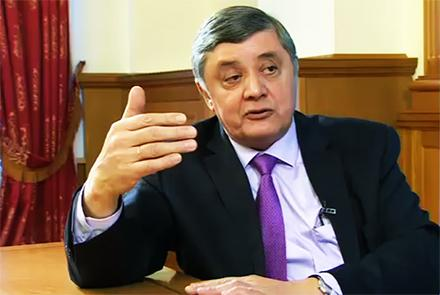Russian Envoy Calls for Transitional Govt in Afghanistan

Russian Special Envoy for Afghanistan Zamir Kabulov in an interview with Sputnik said that Moscow prefers that all parties to the conflict in Afghanistan agree on the establishment of an inclusive and transitional coalition government.
Answering a question about the Taliban’s alleged agenda to take complete control of Afghanistan, the Russian envoy stated that it would be a bad scenario if the Taliban insisted on such an approach; however, he said, Russia believes that it would be good if there was a transitional coalition government in place in which the Taliban had political status.
Kabulov said that the peace talks in Doha have failed, and he called for the peace process to proceed in the Moscow format where there is also the presence of the US, Russia, China and Afghanistan’s neighboring nations.
He said that the talks in Doha are only about making contact, not peace negotiations.
“I have been assigned a task by the leadership to facilitate the start of intra-Afghan talks by undertaking discussions within the framework of a (three-way party meeting) which includes Russia, the US and China. We have agreed about such a meeting with the US Special Envoy Zalmay Khalilzad; there is a possibility that this meeting will be held in Moscow,” Kabulov said Sputnik.
Kabulov said that the Taliban’s insistence on the return of the emirate will jeopardize the peace process.
“If the discussion is focused on taking complete control, this will be a bad scenario,” said Kabulov.
Kabulov said that Russia prefers a plan to create the establishment of a transitional coalition government which could also determine the political status of the Taliban.
“In the first phase—there is a need for the establishment of a transitional coalition government which could be able to lead and control both parties—later, there is a need to form a new government to help resolve the problems,” said Kabulov.
The Russian envoy added that the delay in starting “real” peace talks led to the Taliban’s expansion of their area of influence by exploiting the Afghan government’s reluctance to engage in a key dialogue, which he said now controls 75 percent of Afghanistan’s territory.
